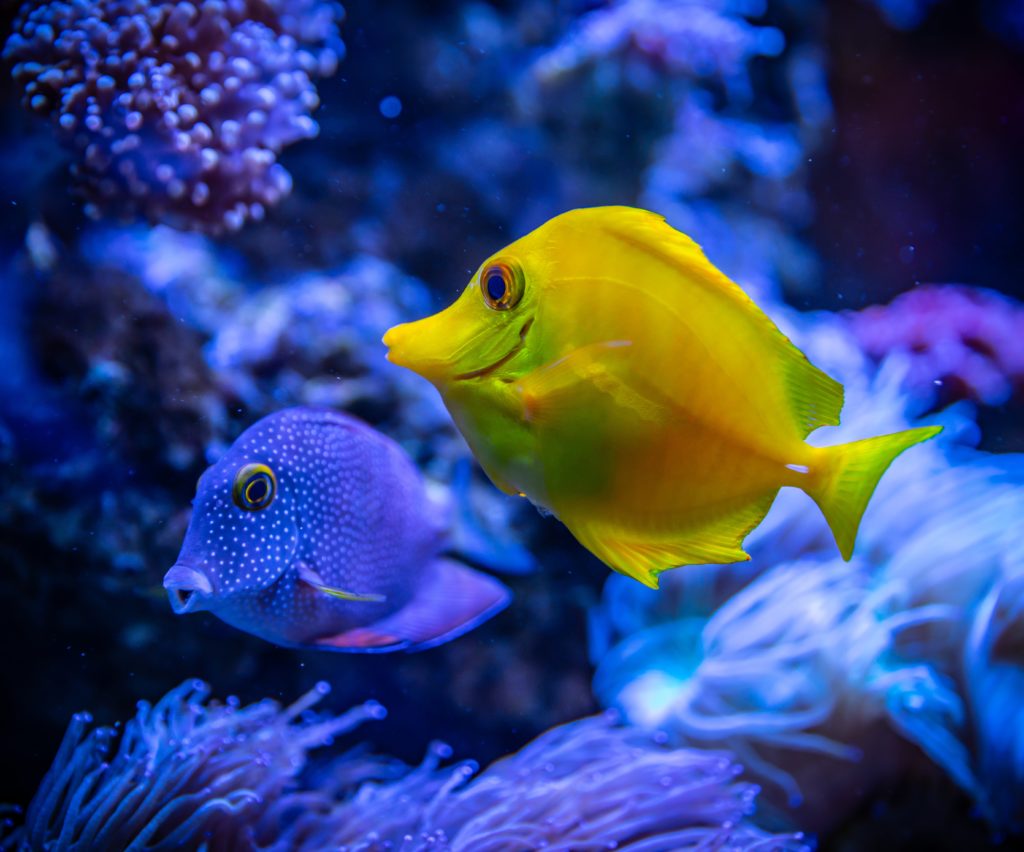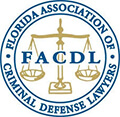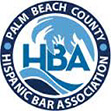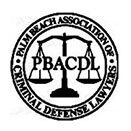Fish and Wildlife Violations Defense Lawyer in Lake Worth

For some, fishing and hunting are a favorite pastime enjoyed with friends. For others, they are the first step in preparing a family dinner. Regardless of one’s purpose for casting a line in the water or wearing camouflage, it is important to know that regulations exist for these popular activities. Failure to follow fish and wildlife regulations can result in a criminal charge. In the event of a violation, having an FWC violations attorney on your side can make all the difference.
Why Should You Hire an FWC Attorney?
Representing yourself in an FWC case can put you at serious risk. Do not assume that a fishing violation is not a big deal; failure to take action on your case can result in a default judgment with a heavy fine or even a warrant for your arrest.
If your charging document places you in criminal court, you should seriously consider hiring a criminal defense lawyer to discuss your rights and options with you. Why?
- A Florida FWC attorney can review the alleged facts of your case, consider the strengths and weaknesses of your case and whether the government can prove the allegations beyond a reasonable doubt.
- An attorney will determine what the offer is for resolving your case, negotiate with prosecutors on your behalf and help you decide whether you should accept an offer or exercise your right to a trial.
- An FWC violations attorney with knowledge of fishing cases can not only weigh the facts but also detect any legal or procedural errors that may be present in the case.
- A Florida FWC lawyer can help confirm your court date and location. Many FWC violations arise from alleged activity in Belle Glade because of the city’s natural terrain. If a case began in Belle Glade, you will likely have a court date at the Palm Beach West County Courthouse in Belle Glade, Florida. For alleged fishing offenses elsewhere, other possible venues in Palm Beach County include the South County Courthouse (Delray Beach, Florida), North County Courthouse (Palm Beach Gardens, Florida) or the Main Branch Courthouse in West Palm Beach, Florida. You should be aware that your first court date is normally within three to four weeks of the charging date.
- An FWC criminal defense attorney can request a waiver of your presence for most court hearings and attend on your behalf.
- An experienced FWC attorney will know how to request discovery—all of the evidence in your case such as reports, photos or video. This will allow your lawyer to properly assess your case and prepare your best defense.
Florida Fish and Wildlife Conservation
Florida is known for its abundant, diverse and extraordinary wildlife. The state is home to more than 700 land animals, more than 200 freshwater fish and more than 1,000 marine fish.
Unfortunately, many species are considered endangered, threatened or conservation-dependent because of human action. Whether a person blatantly disregards the value of nature or is simply making an innocent mistake, activities such as excessive fishing or hunting; fishing young or undersized fish; fishing out of season; hunting out of season and entering restricted, protected nature areas can have a devastating effect on fish and wildlife.
The Florida Fish and Wildlife Conservation Commission (FWC) was founded in 1999 to regulate the state’s fish and wildlife resources. FWC is a government agency with the power to prosecute fish and wildlife violations across the state. Its law enforcement officers are committed to protecting Florida’s animals and habitat, and they zealously do so by issuing infractions as well as criminal citations to violators.
Fulfilling its purpose, the Florida Fish and Wildlife Conservation Commission established rules and regulations codified in Chapter 68 of the Florida Administrative Code and Chapter 379 of the Florida Statutes. These laws govern actions with respect to marine life, aquatic life, wild animal life, boating, recreational activities and licensing in Florida.
Common Florida FWC Violations
Like the wildlife they’re designed to protect, Florida FWC violations are incredibly varied and complex, plus they can carry hefty consequences, which is why, regardless of the violation, we recommend enlisting the assistance of an experienced attorney. Florida law heavily regulates fishing as part of wildlife conservation efforts, putting limitations on size, species, season and amount.
Some of the most common fishing violations with which our firm can help include:
- Fishing without a license, fishing marine life without a permit or saltwater fishing license, or fishing with a suspended license
- Keeping undersized fish
- Harvesting or possessing a dolphin (mahi-mahi) that is less than 20 inches in fork length
- Fishing or hunting out of season
- Harvesting or possessing snook out of season (closed seasons in the Atlantic are June 1 through August 31 and December 15 through January 31)
- Hunting or fishing more than the legal limit for a species
- Exceeding the recreational bag limit of two king mackerel per person, per day
- Lobster and crab violations
- Failure to remove stone crab traps within five days after the close of stone crab season
- Harvesting or possessing undersized spiny lobster
- Fishing for swordfish with prohibited gear (only hook and line gear is allowed)
- Taking or disturbing sea turtles, nests or eggs
- Feeding alligators or crocodiles
- Possession of wildlife without a permit
Fish violations can range from a noncriminal infraction to a misdemeanor or even felony offense. The specific laws and penalties for fish and wildlife cases are outlined in Chapter 379 Florida Statutes. Details on fishing regulations are also found on the Florida Fish and Wildlife Conservation Commission website, with helpful charts, pictures and calendars organized by species.
Though it is admittedly difficult to keep up with these growing restrictions, ignorance of the law is not considered a defense. In the event of receiving such an infraction, having an FWC violations attorney on your side can make all the difference.
Florida FWC Violation Penalties
The FWC established penalties for failure to follow Fish and Wildlife laws. Penalties for fish and wildlife violations range from a civil infraction to a felony criminal charge depending on the nature and frequency of the violation. Section 379.401 of the Florida Statutes lists four levels of severity (one being the least severe and four being the most severe).
Level One
Violations involving licensing, permits, reporting and management areas (either not having a license or permit or having a suspended license or permit). Level One violations are noncriminal infractions requiring payment of civil penalties.
Non Criminal infraction
- First conviction: $50 plus the cost of the license or permit
- Second or subsequent conviction within three years: $250 plus the cost of the license or permit
Level Two
Violations involving fishing or hunting out of season, size and bag limits, fishing or hunting methods, restricted areas, tagging requirements and feeding wildlife.
Level Two violations are criminal charges classified as second-degree misdemeanors, punishable by 60 days in jail and a $500 fine. However, a Level Two violation can escalate to a first-degree misdemeanor, punishable by a year in jail and a $1,000 fine, for violators with prior FWC convictions.
Criminal violation, court appearance required
- First conviction: second degree misdemeanor punishable by 60 days in jail and $500
- Second offense outside of three years: Second degree misdemeanor punishable by 60 days jail and a $500 fine
- Second offense of level two or higher in the last three years: First degree misdemeanor, punishable by 364 days in jail and a $1000 fine; minimum mandatory fine of $250.
- Third level two conviction or higher within five years: First degree misdemeanor, punishable by a year in jail and a $1000 fine; minimum mandatory fine of $500 and suspension of recreational license or permit for 1 year.
- Fourth level two conviction or higher within ten years: Maximum sentence of 1 year in jail and $1000 fine; minimum sentence of $750 fine and a 3-year recreational license suspension.
Level Three
Violations involving the sale of saltwater fish, exotic marine plants or animals, taking game or fish while a required license is suspended, importation of freshwater fish, transportation of commercial quantities of freshwater fish, possession of deer and wild turkey, sale or possession of alligators and other major violations.
A level three violation is a first degree misdemeanor. Violators with prior FWC convictions face mandatory fines and the suspension of recreational licenses in addition to the possibility of jail and the standard fine.
Criminal violation, court required
- First violation or has not been convicted of a level three violation or higher within the last 10 years: First degree misdemeanor; max $1000 fine and one year jail
- Second or subsequent violation of level three or higher within 10 years: First degree misdemeanor punishable by $1000 fine and 1 year in jail; minimum mandatory fine of $750 and suspension of license up to 3 years; for offenses involving the taking of fish or game with a suspended license, a mandatory fine of $1000 will be assessed.
Level Four
Violations involving the criminal taking of stone crabs and blue crabs, unlawful production of spiny lobster trap tags, willful molestation of gear, forging recreational licenses, killing alligator eggs and sale of illegally-taken deer or wild turkey. A Level Four violation is a third degree felony, punishable by five years in prison and a $5,000 fine.
Most severe fish and wildlife violation; Criminal violation, court required
- Third degree felony punishable by five years in prison and a $5000 fine
What to Do If You’re Charged With an FWC Violation
You may be reading this because you have already been charged with a fishing violation. This is the case if you have received a formal charging document—the Arrest Report, Notice to Appear or citation. You will likely have to attend court to address your fishing violation.
Upon receiving your charging document, you should immediately check whether the allegation(s) constitute a noncriminal infraction, misdemeanor offense or felony offense. While you would always benefit from the advice and representation of an experienced criminal defense attorney, the severity of your alleged offense should help you determine just how critical it is to seek the help of a professional.
To be safe, the best course of action is to check with an FWC violations attorney—someone who understands the recreational laws fully and who can help you with your next steps.
Florida FWC Charging Process
An FWC charge normally begins with an FWC law enforcement officer issuing a citation or Notice to Appear at the scene of the alleged incident. The charging document may be civil or criminal, depending on the alleged violation.
A civil citation does not generally require a court appearance, but you may elect to go to court to address your case in front of a judge.
Keep in mind that payment of a civil citation without electing court constitutes an automatic guilty plea and conviction on your record. Therefore, it may be best to take your case to court for the opportunity to negotiate with law enforcement, ask the court for leniency or hold the FWC officer to his or her burden of proof.
A criminal citation or Notice to Appear comes with a mandatory court appearance. After serving the accused the charging document on scene, the FWC officer submits a copy to the clerk of courts. The clerk then enters the charging document into the court system and creates a case number for the FWC case. Next, the clerk mails the defendant a Notice of Hearing which contains the date, time and place for arraignment (formal reading of the charges).
At arraignment, the judge asks the defendant to enter a plea of either “guilty” or “not guilty.” Because resolving a case at arraignment does not allow for negotiation with the prosecution, a review of the evidence and consideration of all options, most people plead “not guilty” at this stage.
A “not guilty” plea at arraignment does not mean a case will go to trial; it simply means the accused is taking the time to hire a lawyer, demand disclosure of the evidence and weigh his or her options. Pleading “not guilty” at arraignment is usually the wise choice, as sometimes an experienced FWC lawyer can later negotiate an agreement that results in dismissal of the case upon completion of the terms.
Naturally, a plea of “not guilty” at arraignment means additional court dates. Pre-trial court dates are called pretrial, case disposition, status check or plea conference. The point of these hearings is to evaluate your case, negotiate a better plea offer and prepare a defense.
Ultimately, you will hopefully make an informed decision as to whether you will resolve your case with a negotiated settlement or take your case to trial. A criminal defense attorney experienced in FWC cases will be able to provide appropriate advice based on an assessment of the plea offer as compared to the strength of your case.
How to Avoid Fish and Wildlife Violations
Fishing and hunting are a normal part of Floridian culture. As such, we may forget – or perhaps never know – that these actions are heavily regulated by the Florida Fish and Wildlife Conservation Commission. Unfortunately, a lack of knowledge regarding fish or wildlife laws is not a defense to environmental violations.
Whether you view fishing and hunting as a sport, a business, a pastime, or a nutritional necessity, you should take the time to become informed of FWC rules and regulations to avoid a Fish and Wildlife violation. You can find fish and wildlife laws in the Florida Statutes chapter 379, the Florida Administrative Code chapter 68, and the Florida Fish and Wildlife website.
In addition to learning the law, it may be helpful to watch professional hunters and fishermen, fish and wildlife officers, fish and wildlife attorneys, and environmental volunteers in action. You can look up videos on YouTube or visit a local nature area. Palm Beach and Martin Counties abound with beaches, piers, parks, and nature preserves; these include the Loggerhead Marine Life Center, Gumbo Limbo Nature Center, John D. MacArthur Beach State Park, and Blowing Rocks Preserve. Observing the environment and those who are involved with nature on a daily basis can prove to be both informative and inspiring.
If, after reading the rules and observing others, you are still unsure about a rule or regulation related to fish and wildlife, check out the Frequently Asked Questions pages on the FWC website, ask a question on the Contact FWC form, or consult with a Fish and Wildlife Attorney. Do everything you can to ensure compliance with FWC laws to reduce your chances of getting civilly or criminally charged.
How Casanova Law Can Help

Casanova Law is a criminal defense law firm in Lake Worth, Florida, that represents clients in fishing and wildlife violations in Palm Beach County. Leading attorney Lourdes Casanova is a former prosecutor for the 15th Judicial Circuit in Palm Beach County with years of criminal law experience. If you need an FWC violations attorney, we have the experience you will need when it comes time to face the court.
Contact Casanova Law at (561) 236-5340 or info@casanovalawpa.com to schedule a consultation.
Florida FWC FAQs
How much does a fish or wildlife violations lawyer cost?
Representation fees for alleged fish and wildlife violations will vary from $100 - $10,000 depending on an attorney’s level of experience, the complexity of the case, the severity of the charge, the number of charges, and the defendant’s prior environmental record. Some fish and wildlife cases are civil infractions, while others are considered crimes; in general, attorneys’ fees for criminal cases are higher than those for noncriminal infractions. Misdemeanor fish and wildlife cases range from $1,200 - $5,000. Felony environmental crimes usually exceed $5,000. For a price quote on a specific case, it is best to contact a fish and wildlife or environmental crimes attorney.
How will wildlife violations affect me in the future?
Although many environmental violations seem innocuous at first glance, they can have a devastating impact on your life, career and record. From a recreational or business perspective, you may lose your fishing or hunting license. You can also face hefty fines, jail time, and a criminal conviction. A criminal conviction for a fish or wildlife violation will last a lifetime, and it is visible to employers, schools, and government officials. It can also be used to enhance sentencing in the future if you receive any other charge.
What is the fine for undersized fish in Florida?
Florida law groups fish and wildlife violations into four different categories by severity. Violations of the FWC rules involving undersized fish are level two violations. A first conviction for an undersized fish offense is a second degree misdemeanor, punishable by 60 days in jail and a $500 fine. For a second or subsequent level two conviction committed within three years, the violation escalates to a first degree misdemeanor that carries a maximum sentence of 1 year in jail and a $1000 fine.
What happens if you get caught fishing without a license in Florida?
Fishing without a license is a level one violation – the lowest level offense for fish and wildlife cases. It is a civil violation rather than a crime. Still, an accusation for fishing without a license should not be taken lightly. Not only do the civil penalties range from $50 (for a first offense) to $250 (for a second offense or a third offense within 36 months), you must also pay the cost of the license or permit. Additionally, failure to pay the penalty or appear in court can elevate the case to a criminal charge.







